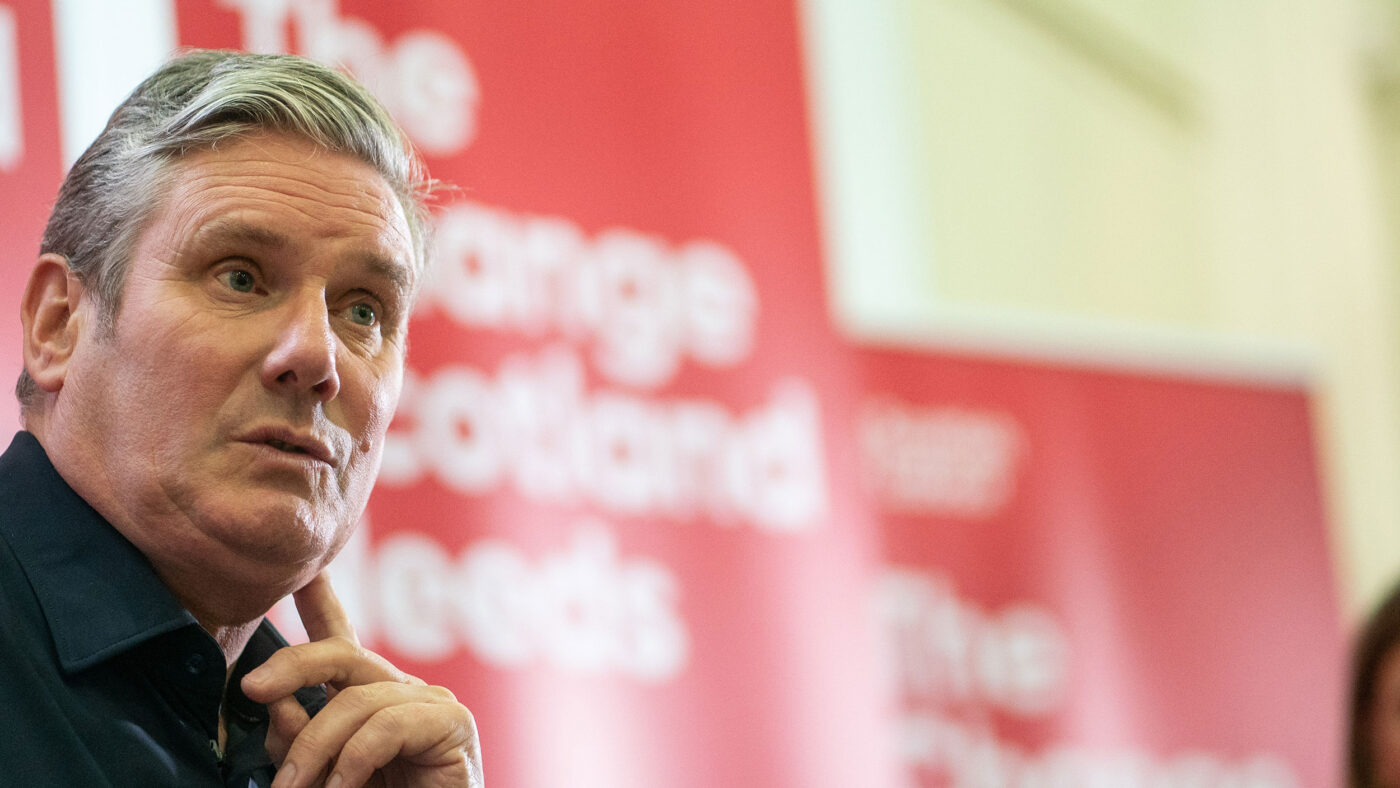Keir Starmer has one clear and unwavering policy objective and that’s getting elected. Even if it means ditching every discernible pledge or principle, his eyes are fixed firmly on the prize. During a recent Q&A session in The Guardian he admitted that his greatest fear is failure, ‘I hate losing […] some people say it’s the taking part that counts. I am not in that camp. It’s the winning that counts’. Labour appear to be well on-course for government and the only two things we can be 100% certain of are Starmer’s ferocious appetite for power and that his father was a toolmaker.
Of course, winning is incredibly important in politics. As his predecessor should attest (but never will), winning the argument isn’t enough if you want to create meaningful change. But for voters, the important question is why he wants power and what he intends to do with it. So who is the real Keir Starmer and what does he believe in?
By his own admission, he’s the man who once proposed the abolition of the monarchy only then to accept a knighthood and open Labour Party conference with an enthusiastic rendition of God Save the King. He promised to ‘end the national scandal of spiralling student debt’ by scrapping tuition fees but has since changed his mind. He denies being an ally of Jeremy Corbyn despite describing him as a ‘friend’ and serving in his shadow cabinet. He tells Labour MPs not to join picket lines and yet in 2020 he stood shoulder to shoulder with strikers outside University College London and said, ‘it’s really important you get politicians to come out and support you and stand with you in this. I’m very proud to do that’. According to The Financial Times he now plans to water down plans to strengthen workers’ rights in order to cosy up to business. He pledged to bring public services into ‘common ownership’ but has since ruled it out.
He pushed for a second referendum vowing to ‘defend free movement’ but now states ‘our future is outside the EU’. He now acknowledges that a woman is an ‘adult female’, having previously said that it was ‘not right’ that only women have a cervix. He once called climate change ‘the issue of our time’ but now orders protesters to ‘get up, go home. I’m opposed to what you’re doing’. When running to be Labour leader he boasted of his pride in taking on ‘the Murdoch press’ as Director of Public Prosecutions (DPP) but now he’s happy to sip champagne at Rupert’s lavish summer party. You name a topic and he’s almost certainly flirted with both sides. Some might call him pragmatic, others might call him opportunistic.
Yes, people can and do change their minds. But he isn’t some teenager on a path of self-discovery. He’s a 60-year-old man who could very realistically become Britain’s next Prime Minister. Granted he has only been an MP for eight years but within that short period he has shown an astonishing gift for fickleness. It’s surely reasonable to assert that Starmer isn’t driven by ideas and vision, but by pure personal ambition. If he’s willing to treat Labour Party members with such disrespect by casually breaking the pledges on which he was elected, why should the public take his current plans seriously?
And for a man who treats his own beliefs so casually, Labour parliamentary selections suggest he isn’t keen on internal dissent. Left wing contenders with a background in the unions are routinely blocked in favour of slick centrist professionals. It makes sense in one way as it means he would find it much easier to push through legislation in government (though what he’s likely to want to push through is anyone’s guess) but it also reveals a man who isn’t comfortable having his ideas tested and challenged. Again, if he’s wary of dissent within his own party what does that mean for us, the general public? One thing is for certain, leaders who surround themselves with sycophants tend to fall victim to their own insecurity. All the while, as he routinely sends his shadow cabinet ministers out to defend his U-turns and broken promises, one is reminded of Boris Johnson and how in they end, they got sick of doing it for him.
Keir Starmer’s politics is constantly shifting depending on whatever is seemingly popular (or unpopular) at any given moment. Timid but not because he’s nervous of the economic or social impact of said policy but in case it prevents him from fulfilling his dream. Keir Starmer believes in nothing but getting elected.
Click here to subscribe to our daily briefing – the best pieces from CapX and across the web.
CapX depends on the generosity of its readers. If you value what we do, please consider making a donation.


